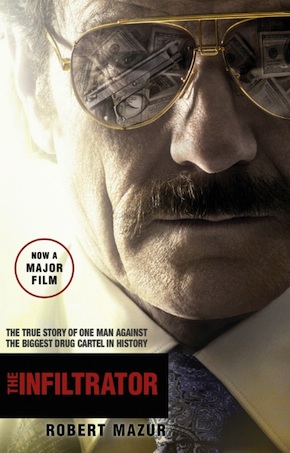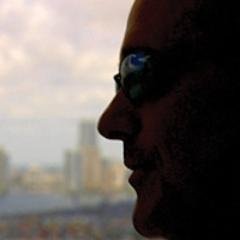The day of reckoning
by Robert MazurUS District Court, Tampa, Florida
March 26, 1990

“One of the largest money-laundering prosecutions in US history.” Robert Mueller III, director of the FBI
Armed guards led me into a tiny, windowless room in Tampa’s US District Courthouse. Through the glossy mahogany walls came the muffled voices of lawyers arguing and the response of an unruly crowd. On the other side of the door, I was about to do battle with some of the best defense attorneys money could buy. For the first time since the unmasking of Bob Musella – my cover as an international money launderer – half a dozen men who had come to realize that I wasn’t really one of them were about to lay eyes on me.
As the minutes dragged, I gathered strength for the fight ahead by thinking of my wife and children, who had spent years enduring the hardships of my career. With the operation over, we all looked forward to returning to life as it had been, only to learn that some of the eighty-five men charged in the first wave of indictments had put a $500,000 contract on my head. My family and I had relocated and were living under an assumed name, but I wouldn’t be able to live with myself if my role in taking down cartels and their bankers brought any harm to those I loved. The hard work and anguish of the last four years would have meant nothing. I needed every ounce of strength and determination I could muster to get through the next three months on the witness stand.
“They’re ready for you now,” said a deputy US marshal, opening the door and breaking my reverie. He led me into a courtroom jammed with hundreds of reporters and spectators – and also the wives and children of the defendants with whom I had spent so much time. They said nothing, but their faces all screamed, How could you? On the courtroom floor, the six defendants huddled among a constellation of lawyers.
Rudy Armbrecht, a major organizer for the Medellín cartel, had worked with the entire cartel commission to arrange some of their most sensitive operations in the US. If they needed to buy fleets of aircraft or assess the feasibility of global laundering schemes, they called on Rudy. He looked like a crazed Jack Nicholson, but he had the extraordinary intelligence and philosophical bent of Hannibal Lecter. Pablo Escobar had hand- picked Armbrecht’s boss, Gerardo Moncada – also known as Don Chepe – to control a large part of his cocaine empire. Armbrecht had acted as a conduit between me, Don Chepe, and Escobar. As I glanced toward him from the stand, Armbrecht grabbed his tie and, with a demented look on his face, waved it at me to say hello.
Near Armbrecht sat Amjad Awan, a smooth-as-silk senior executive of the Bank of Credit and Commerce International (BCCI) who laundered money for some of the most notorious criminals in the world. His clients included President Muhammad Zia of Pakistan, General Manuel Noriega of Panama, and high-ranking drug dealers in the US. The son of the former head of the ISI – Pakistan’s equivalent of the CIA – Awan supported a group then known as the Afghan Freedom Fighters, known now as the Taliban. Awan held himself above stunts like waving his tie. In his impeccably tailored suit, he tilted his head forward and looked down his nose as though he were royalty annoyed by my presence.
Sitting beside Awan was his best friend and co-marketer at BCCI, Akbar Bilgrami, who shared responsibility with Awan to develop business for BCCI in all of Latin America, where they openly sought relationships with the owners of any dirty money they could find. Born and raised in Islamabad, Bilgrami spoke fluent Spanish and had spent long stretches of his career in Colombia, where he met his third wife. Bilgrami stared me down, fidgeting in his seat and rubbing his hands together. Even when I was undercover, I had trouble putting him at ease. No doubt he knew this day would come.
Ian Howard, a BCCI officer born in India, ran the Paris branch of the bank, doing the dirty work for his boss, Nazir Chinoy. The third-highest-ranking executive in a 19,000-employee bank, Chinoy directed all European and North African branches. After I won Chinoy’s confidence in Paris, he brought Howard into our schemes. Chinoy would have been sitting in the courtroom, too, had he not been fighting extradition in London, where authorities there had arrested him and were holding him without bond. The old London jail in which he was languishing made most US prisons look like four-star hotels. His minion Howard glared at me, but neither his face nor his body moved.
I’ve been to bachelor parties like this when women dress up like cops and act like they are arresting you,” he said, laughing. “Where are the women?”
Also from Paris, Howard’s right-hand man Sibte Hassan found himself tangled in the web of our undercover operation. Hassan’s was the hand that pushed money around the globe wherever Chinoy directed. Younger and less experienced than his colleagues, Hassan had never set foot in the US before his arrest. His dependence on his superiors carried through even to the courtroom. He kept glancing at the other defendants, looking to see how he should act.
Last in the line-up came Syed Hussain, a BCCI account executive in the Panama branch. Hussain saw in me an easy means of meeting the bank’s pressure to bring in any kind of money, as long as it increased the bottom line of the balance sheet. When agents arrested Hussain, he was on his way to what he thought was my bachelor party. As the cuffs clicked around his wrists, he laughed. Surprised, the arresting agents asked him what was so funny. “I’ve been to bachelor parties like this when women dress up like cops and act like they are arresting you,” he said, laughing. “Where are the women?” The agents shook their heads, and said, “Pal, you need to wake up and smell the coffee. This isn’t make-believe. Your ass is under arrest.”
I spent years undercover as a money launderer to the international underworld, infiltrating the apex of a criminal hierarchy safeguarded by a circle of dirty bankers and businessmen who quietly shape power across the globe. They knew me as Bob Musella, a wealthy, mob-connected American businessman also living the good life. We partied in $1,000-per-night hotel suites, lived in lavish homes, drove Rolls-Royce convertibles, and flew on Concorde and in private jets. Bob Musella was their kind of guy. Bob Musella ran a successful investment company, had an interest in a Wall Street brokerage firm, operated a chain of jewelry stores – he had it all. What they didn’t know was that I wasn’t really Bob Musella. That name and lifestyle were a lie I lived solely to gain access to their secret lives in the criminal underworld.
Under my Armani suits or in my Renwick briefcase, mini recorders captured the damning evidence of our partnerships in crime, which I then passed to my government handlers. After a dramatic takedown staged at a fake wedding (mine), more than forty men and women were arrested, found guilty, and sent to prison. In the year and a half between the end of the operation and the start of the first trial, a handful of dedicated agents and I put in eighteen-hour days feverishly transcribing more than 1,400 clandestine recordings. Those microcassettes became knockout punches in the trials ahead, and Operation C-Chase became one of the most successful undercover operations in the history of US law enforcement.
The story of my role in the sting fed magazine covers and front pages for years: ‘Breaking the Underworld Bank’ (New York Times); ‘BCCI Officials Charged with Money Laundering’ (Wall Street Journal); ‘Fed’s Playboy Cover Topples Drug Moguls’ (New York Post); ‘Narco Bankers – Inside the Secret World of International Drug Money Laundering’ (San Francisco Examiner). But the value of that exposure paled in comparison to the amount of money pumped into the pockets of the lawyers defending the men I saw from the witness stand. Government officials later calculated that tens of millions of dollars flowed from the shareholders of BCCI – wealthy Saudi oil barons – into the defense’s coffers in an attempt to prevent the conviction of bank officers who had catered to my every money-laundering need.
And that figure in turn pales in comparison to the $400 to $500 billion in revenue generated from the drug trade each year, according to US and UN estimates. A vast sum, and yet the US government can’t track even one percent of that wealth. Banks in Switzerland, Panama, Lichtenstein, and other traditional havens continue to harbor dirty money, but my undercover work gathered intelligence showing that other, less traditional outlets were in ascendance. The cartels were starting to move their money to places like Abu Dhabi, Bahrain, Dubai, and Oman. These banks conduct their business in Arabic, resist investigations by Western law enforcement, and thrive in a dollar-based cash trade.
The dirty bankers in all these places help control multi-billion-dollar drug-trafficking empires, running their organizations like public companies. Accountants, attorneys, and financial advisers, their roots run deep in their communities, and they are laundering billions of dollars a year, manipulating complex international finance systems to serve drug lords, corrupt politicians, tax cheats and terrorists. Subtle and sophisticated, they thrive in anonymity, offering discreet, first-class services no matter how much dirt or blood coats the money they protect. And they are getting away with it every day.
This is the story of how I helped bring some of them down. It is also the story of how undercover agents rise through the ranks, how billions of dollars flow through shell corporations and move across borders, how informants are cultivated and safe houses are made. It is, at its broadest, a shocking look inside the secret world of international drug-money laundering. At its narrowest and most intimate, it is a story of harrowing escapes, near misses, and justice served as my fellow agents and I built our case one piece of evidence at a time.
From the preface to The Infiltrator.
 Robert Mazur is one of the world’s leading experts on the financial escapades of the underworld. For five years, he was trusted by organized crime leaders as a successful mob-connected money launderer who helped manage their illicit fortunes. Having completed a twenty-seven-year career as a federal agent, Mazur is now engaged by global financial institutions, public companies and governments. He has published articles in world-renowned newspapers and has appeared on more than 1,000 TV and radio broadcasts, addressing corruption within the financial markets. The Infiltrator: Undercover in the World of Drug Barons and Dirty Banks is out now in Corgi paperback. Read more.
Robert Mazur is one of the world’s leading experts on the financial escapades of the underworld. For five years, he was trusted by organized crime leaders as a successful mob-connected money launderer who helped manage their illicit fortunes. Having completed a twenty-seven-year career as a federal agent, Mazur is now engaged by global financial institutions, public companies and governments. He has published articles in world-renowned newspapers and has appeared on more than 1,000 TV and radio broadcasts, addressing corruption within the financial markets. The Infiltrator: Undercover in the World of Drug Barons and Dirty Banks is out now in Corgi paperback. Read more.
robertmazur.com
@robertmazur
Brad Furman’s film adaptation of The Infiltrator, scripted by Ellen Brown Furman and starring Bryan Cranston, is released in the UK on Friday 16 September.

